Smoked Mac and Cheese
On May 30, 2023
This post may contain affiliate links. Please read our disclosure policy.
Smoked mac and cheese is comfort food in a cast iron skillet. This mac and cheese is creamy, rich, and topped with a crisp panko topping. It’s rounded out with the perfect kiss of smoke flavor from being baked in a backyard smoker.
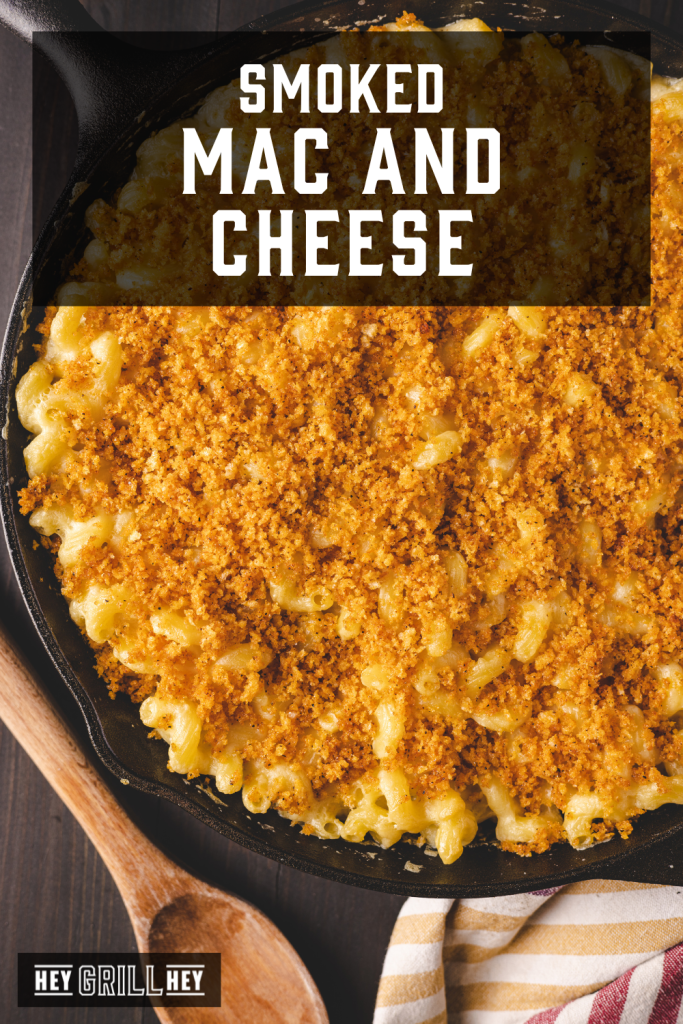
Smoked Mac and Cheese
A good mac and cheese can make or break your perfect backyard BBQ meal, so I have spent years perfecting and refining my recipe. I’ve tried different cheeses, milks, cream, toppings, and more to come up with the perfect blend of flavors and textures. Each ingredient plays an important role, especially in this smoked mac and cheese recipe. You need to be able to taste the smoke without it overwhelming the subtle notes of the cheese and pasta underneath.
After much trial and error, I’ve put all of my tips and info into this recipe for you to enjoy!
If you’ve been using a smoker for a while, you know that porous, wet, or soft items take on smoke really quickly. That is great news if you want to whip up this smoked macaroni and cheese as a side dish for something like a smoked brisket or pork shoulder. You can pull off your big meats to let them rest for an hour and get your mac and cheese right into the smoker without having to preheat your grill.
How to Make Smoked Mac and Cheese
Alright, enough talk about how tasty this dish is; let’s get to the process. Here’s how to make the best smoked mac and cheese of your life.
- Preheat and cook the noodles. Preheat the smoker to 225 degrees F and prepare the noodles according to the packaging. Cook until the noodles are al dente.
- Make a roux. Melt butter in a 12-inch cast iron skillet and add flour to make a roux. Next, whisk in the mustard powder.
- Finish making the sauce. Add in the half-and-half then the cream cheese. Finish up by adding the cheddar and gouda cheese and stir until melted.
- Combine noodles and sauce. Add the cooked noodles to the cheese sauce and stir to combine.
- Make the crumb topping. Mix melted butter, Hey Grill Hey Sweet Rub, and panko bread crumbs together in a bowl. Sprinkle over the top of the mac and cheese.
- Smoke. Place the mac and cheese on the smoker, close the lid, and smoke for 1 hour.
- Enjoy. Remove the smoked mac and cheese from the smoker and serve while nice and warm.
How Long to Smoke Mac and Cheese
It takes approximately 1 hour to smoke mac and cheese. If you prefer your mac with a very smoky flavor, you can leave it in the smoke for up to 2 hours.
Keep in mind that this will take on quite a bit of smoky flavor fairly quickly. I always recommend starting your mac and cheese in the smoker for a shorter amount of time and increasing the next time if you decide you’d like more smokiness.
Tips for the BEST Smoked Mac and Cheese
Now that you’re ready to make this smoked mac and cheese, here are a few tips to keep in mind before you dive into the process.
- Use cast iron. A 12-inch cast iron skillet will go from stovetop to smoker to the dinner table without too much hassle or too many dishes. Plus, it will give you plenty of surface area for your mac and cheese to take on smoke.
- Keep your smoker temperatures low. Anything over 225 degrees F will overcook your noodles and make your mac and cheese dry.
- Use a mild wood. I recommend lighter woods like cherry, apple, maple, or pecan for this recipe.
- Feel free to mix it up! This mac and cheese is a great base for other flavor additions like bacon, green chiles, lobster, or pulled pork. Get creative! My favorite thing to do is add my Hey Grill Hey Sweet Rub to the panko topping for that classic BBQ flavor.
More Mac and Cheese Recipes
If you like this mac and cheese recipe, I’m betting you’ll love these other smoked mac and cheese recipes from Hey Grill Hey.
Smoked Mac and Cheese Recipe
Watch the video below in the recipe card, and I’ll show you step-by-step how I make this smoked mac and cheese recipe at home. You can find more of my smoking and grilling recipe videos on YouTube, Instagram, or our Facebook Page. Follow along and let’s make awesome food together!
This post was originally published in April 2019. We recently updated it with more information and helpful tips. The recipe remains the same.
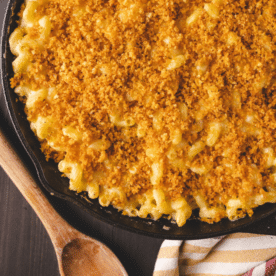
Smoked Mac and Cheese
Video
Equipment
- 1 Smoker I highly recommend this pellet grill!
Ingredients
- 1 pound elbow macaroni noodles cooked according to package instructions
- ½ cup butter
- 4 Tablespoons all-purpose flour
- 1 Tablespoon ground mustard powder
- 2 cups half and half
- 4 ounces cream cheese
- 3 cups sharp cheddar cheese
- 1 ½ cups smoked gouda cheese
Breadcrumb Topping
- 1 cup panko bread crumbs
- ¼ cup butter
- 2 Tablespoons Hey Grill Hey Sweet Rub
Instructions
- Cook the noodles. Bring a large pot of salted water to a boil and cook the macaroni noodles until they are al dente, meaning they still have a bit of chew and texture (not too soft).
- Preheat. Preheat your smoker to 225 degrees F using a mild hardwood. My favorite is cherry or apple.
- Make a roux. Heat a 12-inch cast iron skillet over medium heat. Melt 1/2 cup of butter and then whisk in the flour until a smooth, thin paste forms. Next, whisk in the mustard powder.
- Finish making the sauce. Carefully pour in the half and half and bring the sauce up to a boil while whisking. Reduce the heat and whisk in the cream cheese until smooth. Lastly, whisk in the cheddar cheese and gouda cheese and stir until melted.
- Add the noodles. Turn off the heat and pour in the cooked macaroni noodles. Stir gently until the noodles are coated by the cheese sauce.
- Make the breadcrumb topping. Combine the melted butter, sweet rub, and panko bread crumbs in a small bowl. Sprinkle over the top of the mac and cheese.
- Smoke. Place the skillet in the smoker, close the lid, and smoke for 1 hour. You can smoke for up to 2 hours if you want a stronger smoker flavor, but the noodles will take on quite a bit of smoke fairly quickly.
- Enjoy. Remove the smoked mac and cheese from the smoker. Serve it while it is still warm and the cheese is nice and melty!
Nutrition
Nutrition information is automatically calculated, so should only be used as an approximation.
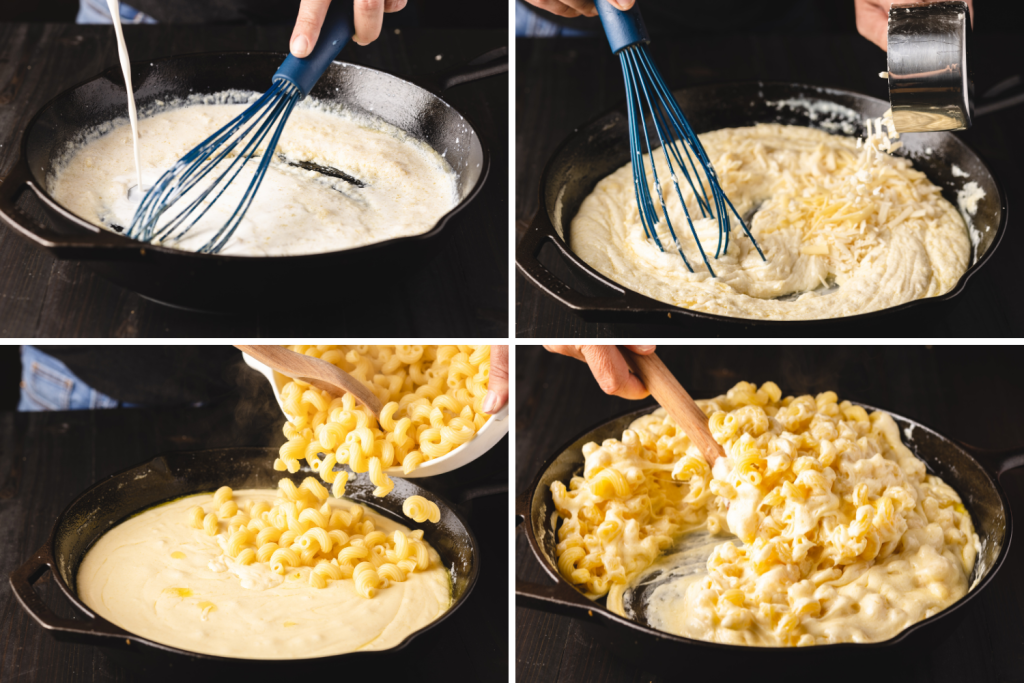
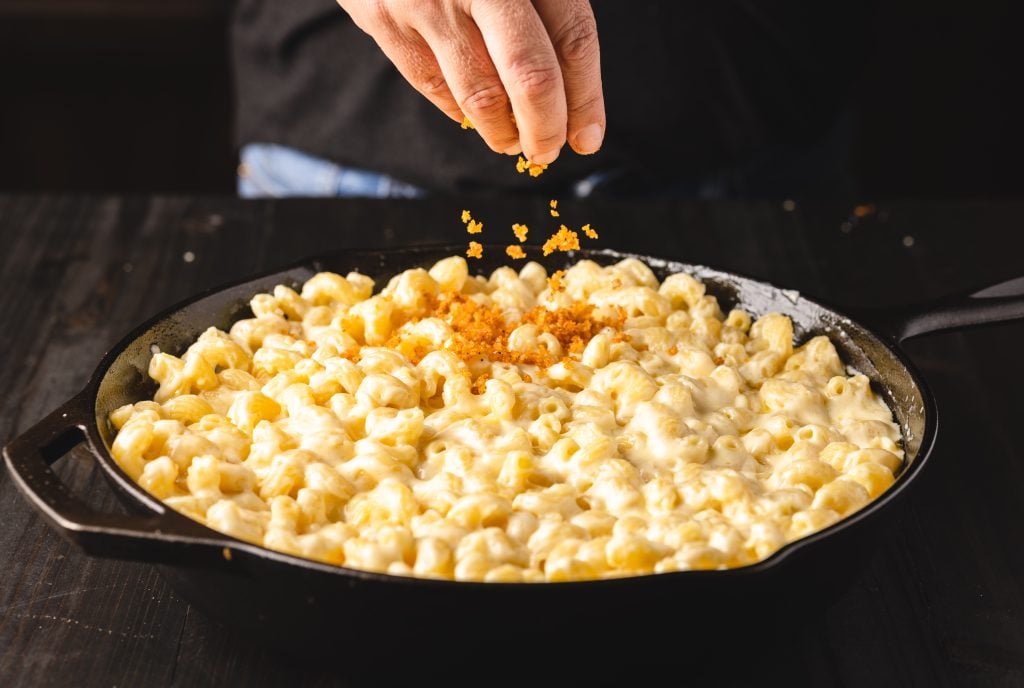
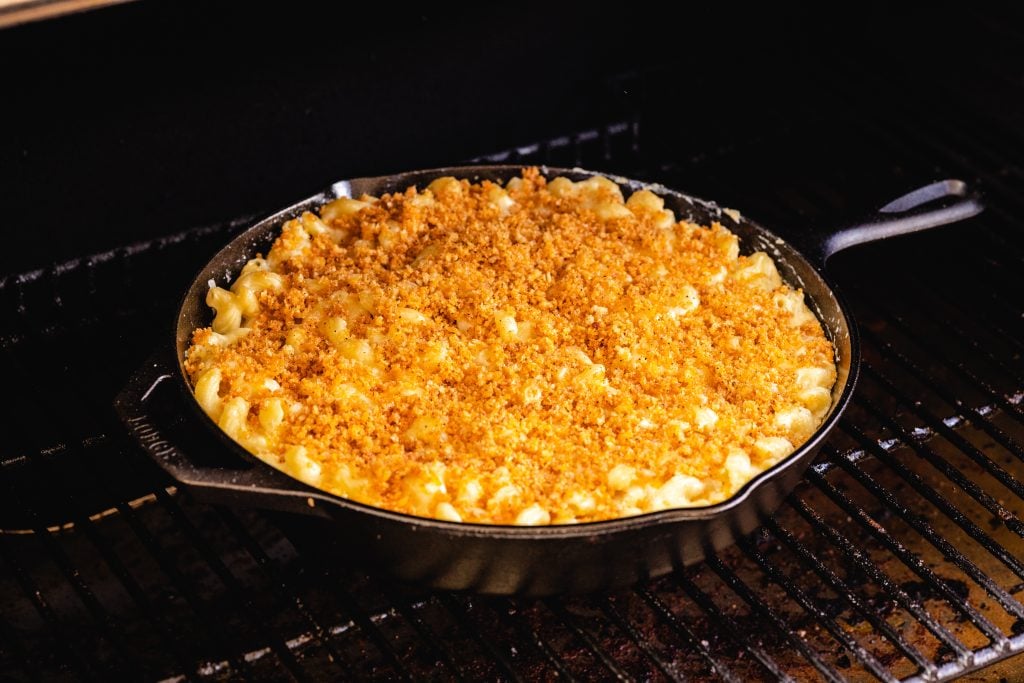
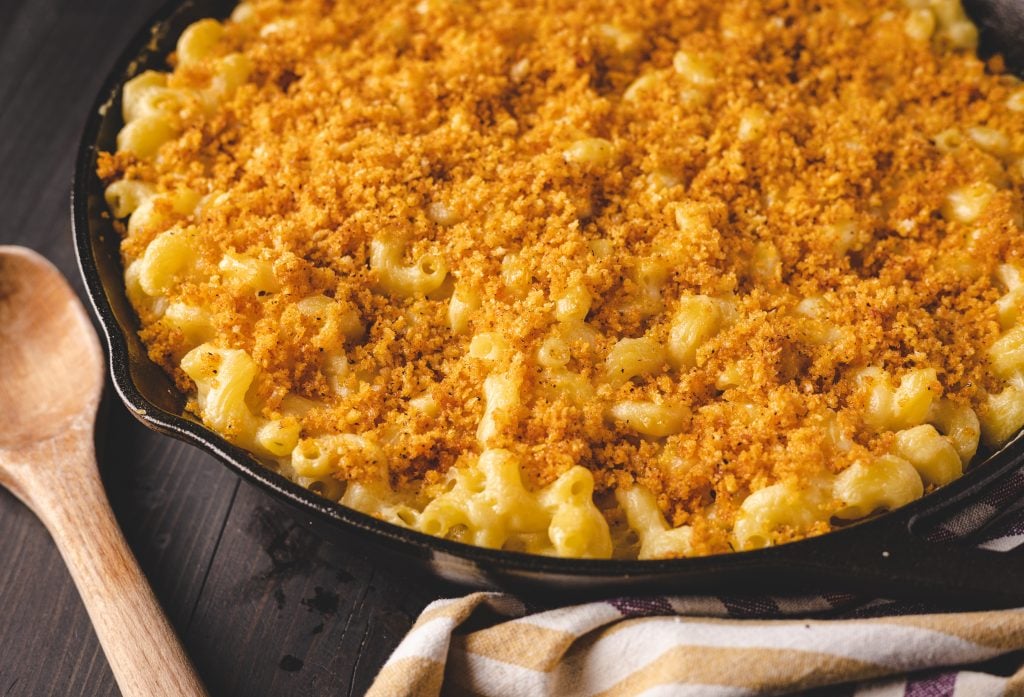
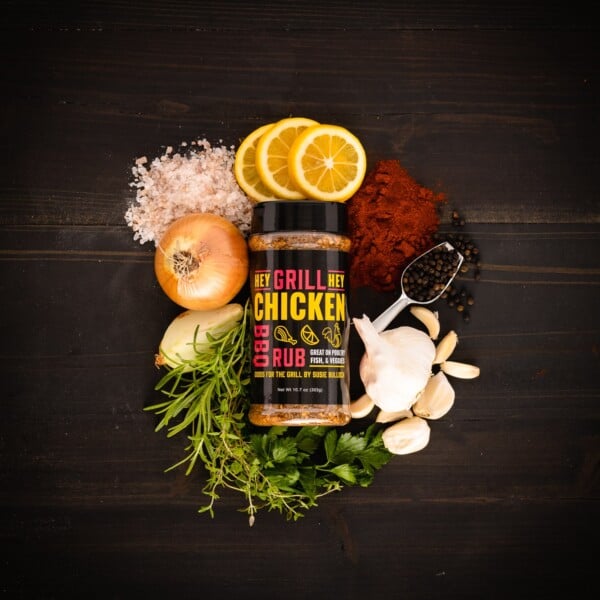
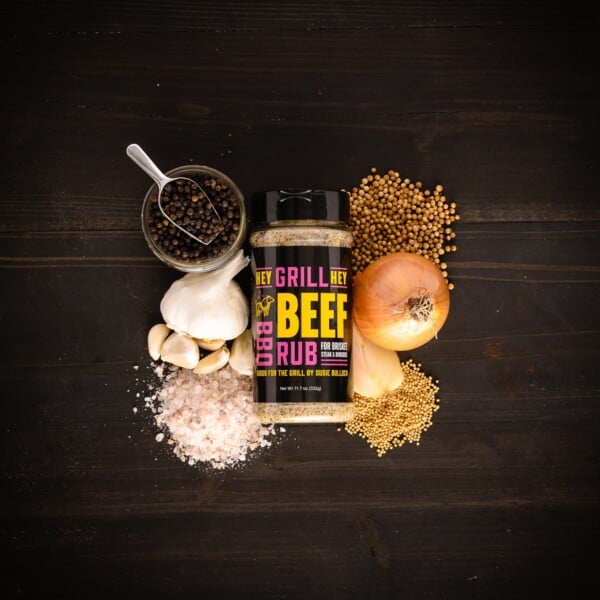

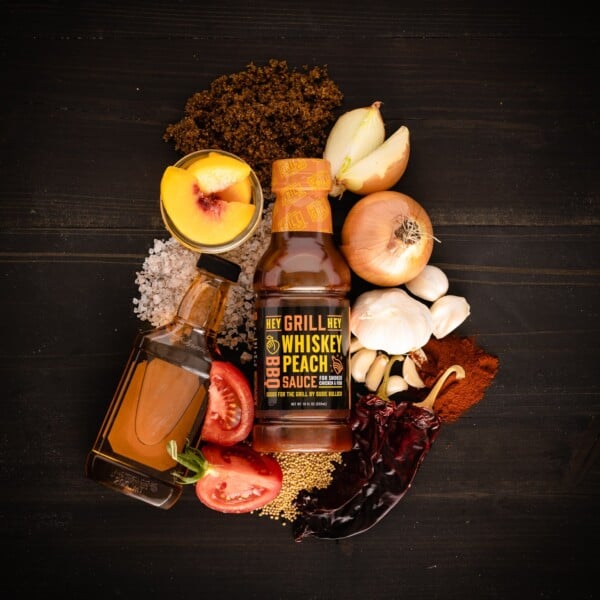

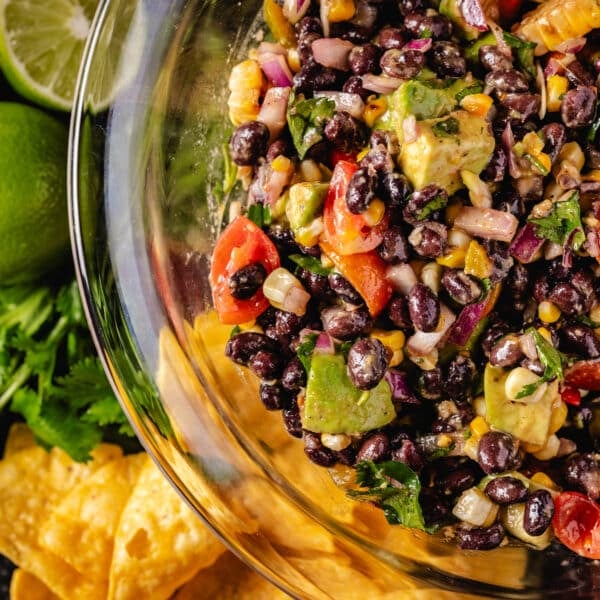
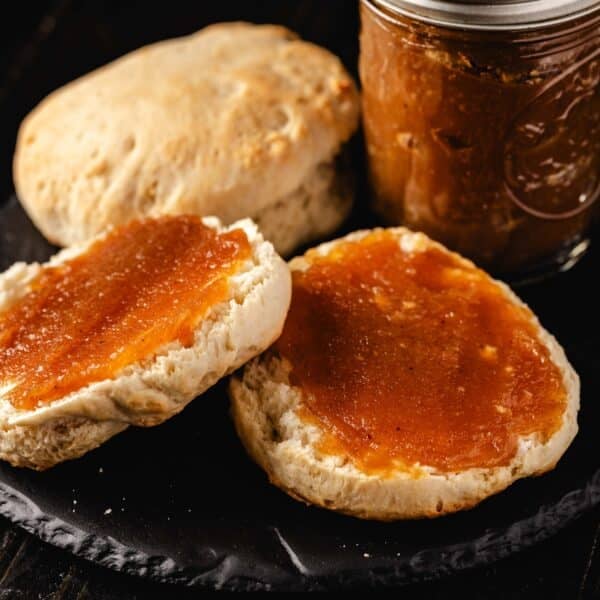
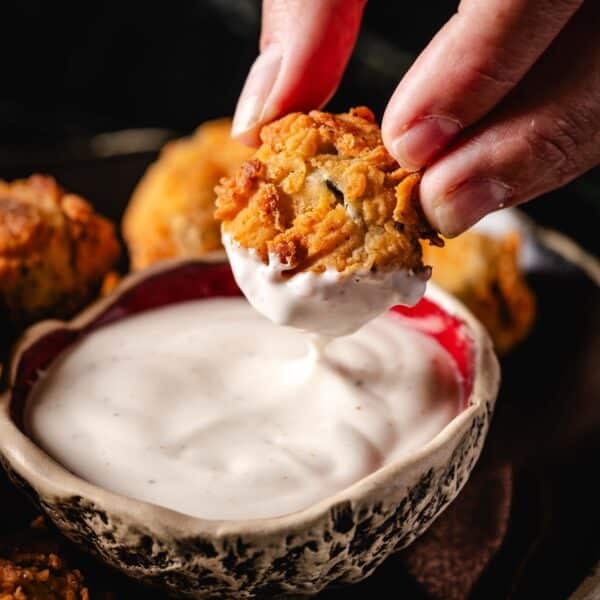
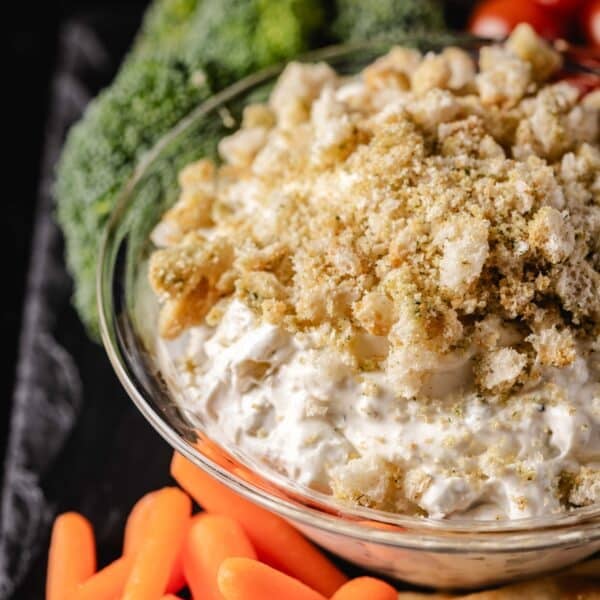




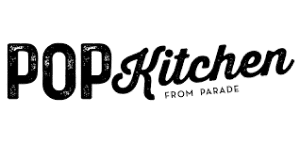
Haven’t smoked it yet but did taste it and it is yummy.
I do need to make a comment about increasing the size of the recipe. When increasing the serving size you really need to update the instructions. For 16 servings, there is no way 2 lbs of pasta and all the cheese will fit in the 12-inch pan. Also, when you increase the serving size of the recipe, it doesn’t update the butter in the recipe instructions so I was confused making it. Despite the ingredient list saying 1 cup butter (for 16 serving size) and 1.5 cup butter (for 24 serving size), the instructions say 1/2 cup butter for the 16 serving size as well as the 24 serving size. So initially I only put in 1/2 cup of butter for a 16 serving size thinking I’d be adding the 1/2 cup at some point later. Just leave the instructions generic (“butter” instead of “1/2 cup of butter”, “large enough skillet” instead of “12-inch skillet”.)
I’ve made this 3-4 times now & it’s a FAN FAV!! I was wondering if you’ve ever made it in advance & how you reheated it? Was it just as good? Any tips there? Thank you!!
You never get quite the same consistency as hot off the smoker, but it’s still totally amazing for 3-4 days. Just make sure you store it in your fridge in an airtight container.
Have you made this in advance and THEN smoked before serving? (love all your recipes- THANK YOU!~)
I haven’t, but you absolutely could. I would recommend only 1 day in advance, so everything stays fresh.
Thank you-:)
So while the flavor is awesome, I found the cheese sauce way too thick. So I added another cup (or more) of half and half to thin it down a bit. Also
Added some chopped crunchy bacon to the panko. Will definitely make this again!!!
Hi, I should put it in the smoker uncovered?
Yes, I leave it uncovered. Great question.